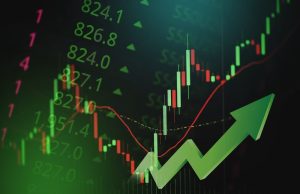
Scott Bessent, Donald Trump‘s nominee for Treasury Secretary, faced sharp questioning in his Senate confirmation hearing Thursday, defending the administration’s economic agenda on tariffs, tax policy, government spending, and U.S. global competitiveness.
Markets took note as Bessent outlined a vision that could steer fiscal policy, trade, and energy. He also reinforced the dollar’s role as the world’s reserve currency.
His remarks signal a return to Trump-era economic priorities — lower corporate taxes, higher tariffs, and increased domestic energy production—with significant implications for investors.
Here are five key takeaways.
1) Will Tariffs Make The Dollar Even Stronger?
Bessent defended Trump’s broad tariff proposals, rejecting claims they would act as a direct tax on American consumers.
See Also: Trump Tariffs Could Hit Pockets Of Consumers, Retailers Urge Customers To Shore Up Purchases
He cited economic models suggesting that the costs wouldn’t fully pass through to U.S. buyers but would instead be offset by currency appreciation, changing consumer behavior, and price adjustments by foreign producers.
“If we were to say use a number that has been thrown around in the press at 10% [universal tariffs], then traditionally the currency appreciates by 4%,” Bessent said, indicating that a stronger dollar would offset some of the inflationary effects of tariffs.
Bessent also stressed the importance of safeguarding the U.S. dollar’s status as the world’s reserve currency, tying it directly to economic stability and national security.
During his confirmation hearing, he stated: “Critically, we must ensure that the U.S. dollar remains the world’s reserve currency.”
He also indicated that tariffs could be a powerful tool in negotiations, potentially replacing sanctions in some cases. He referenced Trump’s belief that sanctions may be pushing countries away from the U.S. dollar, indicating that tariffs could serve as a more strategic alternative.
His comments suggest that if Trump’s tariffs are enacted, investors should watch for dollar strength, which could have major implications for exporters, multinational corporations, and commodity prices.
Since Trump was elected in November, the U.S. dollar index (DXY) – as broadly tracked by the Invesco DB USD Index Bullish Fund ETF UUP – has risen by 5%.
2) Trump’s 2017 Tax Cuts Must Be Permanent
Bessent made clear that one of his top priorities is making Trump’s 2017 tax cuts permanent, warning that allowing them to expire would create “an economic calamity” with “devastating” effects.
If Congress does not act, Americans could face what he called a “gigantic middle-class tax increase” totaling $4.3 trillion starting in 2026.
“We must make permanent the 2017 Tax Cuts and JOBS Act, and implement new pro-growth policies to reduce the tax burden on American manufacturers, service workers, and seniors,” Bessent stated.
According to Bessent, such measures could increase U.S. GDP by 1.1% over time and boost business investment.
He also dismissed criticism that the tax cuts primarily benefited the wealthy, arguing that “the top 50% of Americans now pay 98% of taxes.”
“I believe Wall Street has done great the past few years and that Main Street has suffered. I think it’s Main Street’s time. Wall Street can continue to do well, maybe not as well, and it’s time to have a Main Street small-business-led recovery,” Bessent said.
See Also: Trump’s Tax Proposal Drains Money From 95% Of Households And Funnels It To The Top 5%, ITEP Says
3) Spending Cuts And Deficit Control: Austerity Incoming?
Bessent painted a stark picture of Washington’s fiscal trajectory, stating: “The United States does not have a revenue problem. We have a spending problem.”
He highlighted that the federal deficit has averaged 7% of GDP over the past four years, calling for major reductions in government expenditures.
“One of the things that got me out from behind my desk and my quiet life in this campaign was the thought that this spending is out of control,” Bessent said.
“We must work to get our fiscal house in order and adjust federal domestic discretionary spending that has grown by an astonishing 40% over the past four years,” he added.
Though he didn’t specify which programs could face cuts, he indicated that federal agencies must prioritize productive investments over what he described as “wasteful spending that drives inflation.”
Investors should brace for intense fiscal battles in Congress as lawmakers weigh spending reductions against economic risks.
4) Energy Policy: More Domestic Drilling, Tougher On Russia And Iran
Bessent strongly aligned with Trump’s call for “unleashing American energy production,” arguing that higher domestic output is critical for economic growth and national security.
He indicated that Biden’s reluctance to impose tougher sanctions on Russian oil exports was driven by fears of rising U.S. fuel prices.
“If any officials in the Russian Federation are watching this confirmation hearing, they should know that if I’m confirmed… I will be 100% on board for taking sanctions up, especially on the Russian oil majors, to levels that would bring the Russian Federation to the table,” Bessent stated.
The Treasury nominee also linked energy security to broader U.S. foreign policy, arguing that increased American oil production could help pressure adversaries like Iran.
See Also: US Produced More Oil Under Biden Than At Any Point Under The Trump Administration
“We can make Iran poor again, not the Iranian people, the Iranian, the government, and then at the same time have our domestic producers push that up with the highest energy standards in the world,” Bessent said.
5) Countering China
Bessent signaled a tougher stance on China, arguing that the country’s economic struggles are pushing it toward aggressive trade tactics.
“China is the most unbalanced economy in the history of the world,” he said, emphasizing that Beijing is attempting to “export their way out of their current economic malaise.”
“They are using their surpluses to fund their military machine in China,” Bessent added.
To counter this, he backed stronger controls on U.S. investment in China, particularly in strategic sectors such as artificial intelligence, quantum computing, and semiconductors.
“We want to make sure that we maintain [the lead] through smart policies,” he said.
Check Out:
Image: Shutterstock
© 2025 Benzinga.com. Benzinga does not provide investment advice. All rights reserved.

